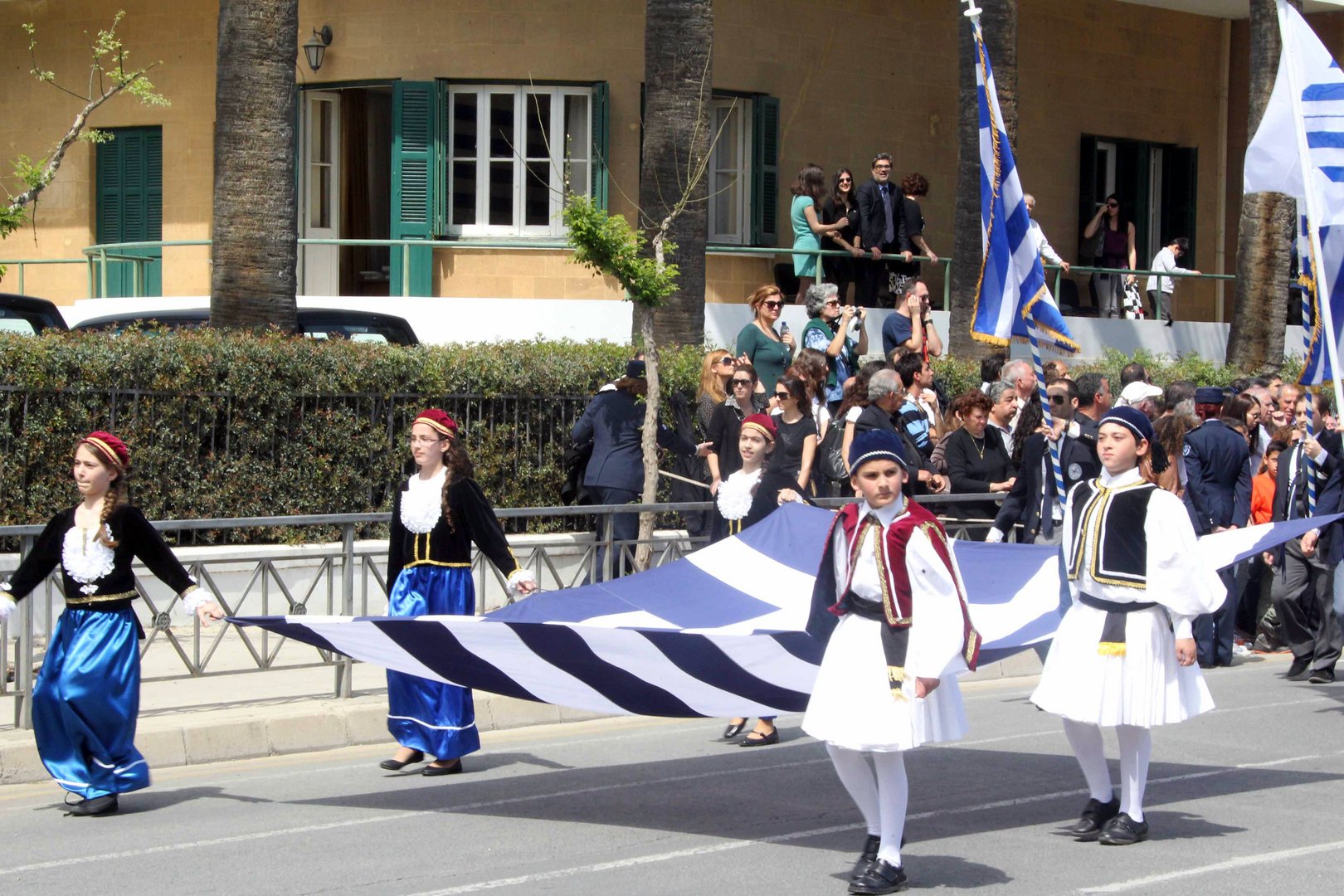It really is impossible to answer ‘who do we think we are?’
By Gavin Jones
Before formulating my take on one of the most intractable and long-running disputes on the planet, it’s worth examining the meaning of the word conundrum. The Oxford dictionary describes it as a confusing and difficult problem or question, a quandary, a dilemma. Informally it’s also described as a brainteaser. Churchill described Russia as “A riddle, wrapped in a mystery, inside an enigma” and Cyprus and its accursed national issue could also possibly be labelled as such.
It all boils down to a question of ethnicity and the roots of that ethnicity, something which has plagued and continues to plague millions of people in many countries, not just Cyprus. Several years ago, there was a popular BBC television series entitled Who Do You Think You Are?, in which people in Britain were interviewed about what they felt about their nationality and their ancestry was. They were also questioned about their views regarding their country’s past, future and related topics.
Many were adamant that they were pure-bred English. They were all DNA tested with many visibly shocked to discover that they had ancestral roots not just with other European countries but also with the Middle East, Africa and Asia. I recall that when the credits rolled at the end of one programme, it was revealed that one person was taking the BBC to court for daring to expose that they were something that they believed they were not. DNA doesn’t lie.
This leads me to Cyprus and its inhabitants. Unlike Britain, which until the mid-20th century only received a relatively limited influx of invaders, the principal ones being Romans, Vikings and Normans, from approximately 10,000 BC Cyprus has been overrun by a great many.
These included firstly Levantines from the area which now straddles Syria, Lebanon, South-East Turkey and Israel, followed by Mycaeneans, Phoenicians, Assyrians, Egyptians, Persians, Romans, Byzantines, Lusignans, Venetians, Ottomans and British. With such a rich variety of peoples coming, going and being assimilated with those who came before them, it’s a wonder if those of us living on the island have any real idea what constitutes the actual make-up of our Cypriot bloodline.
And this is where I believe the real Cyprus problem begins. In 1882, after only four years in control of the island, the British colonial authorities set up the Legislative Council which was like a quasi-parliament giving a veneer of self-rule. It was made up of 12 Greek Cypriot and three Turkish Cypriot members. The British Governor presided. (My maternal grandfather served on the Council from 1926 until 1931). As time went on, Union with Greece (ENOSIS), became the rallying cry for the Greek Cypriots, opposed unsurprisingly by the Turkish Cypriots.
From then until the present day, the two main communities became polarised and began to face off against one another. Add into the mix the fact that after the Ottoman conquest of 1571 many Greek Cypriots decided to switch and become Muslim in order to avoid taxes and probably have an easier life. In short, the resulting indigenous population, of whatever ethnicity and religion, were never able to establish a common nationality they all respected and instead their shared modern history was dominated with suspicion, disrespect, division and bloodshed. The tragedy of this situation continues to dominate.
And where do we go from here? Only a fundamental sea change will unlock the Cyprus problem conundrum and one would have to be an ultra-optimist to see any positive movement anytime soon. Both sides are firmly entrenched with their respective viewpoints. The recent National Council meeting at the presidential palace was yet again an exercise of going through the motions, as was a submission to the EU with some proposals to kick-start negotiations. Moreover, the new president
being a party to the Greek Cypriot stance at the failed talks in 2017 at Crans Montana doesn’t exactly fill one with much confidence that much will change going forward. The north is led by hardliners.
As for Turkish presidential and parliamentary elections in May this year, it matters not who is in charge as Turkish policy towards the island will always remain unchanged. Any fundamental shift will only emanate from Turkey and I predict that at some stage all those holding ‘TRNC’ residency will be offered a vote at a carefully worded referendum to decide their future: protectorate status under the Turkish umbrella or outright annexation. Outright independence is surely unsustainable. The current charade of discussing potential negotiations, along with each side accusing the other of being intransigent will then finally be brought to a close. Watch this space.







Click here to change your cookie preferences